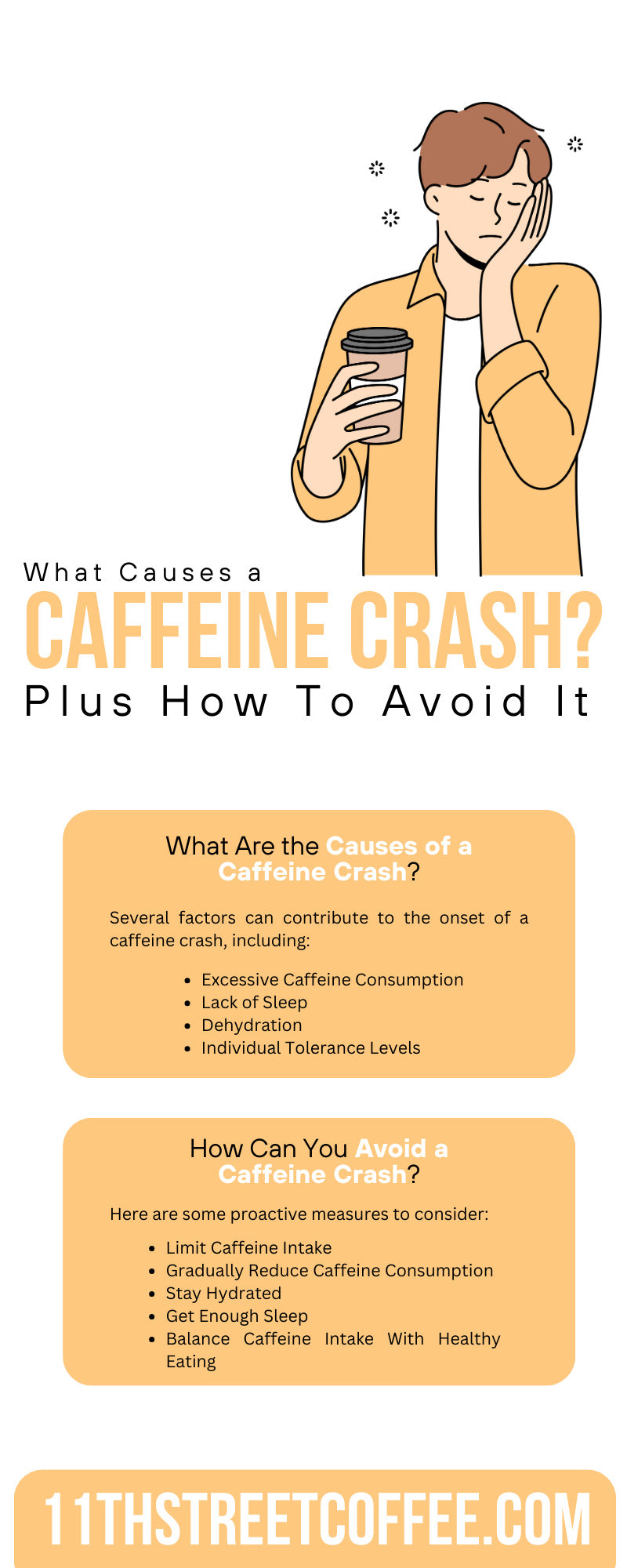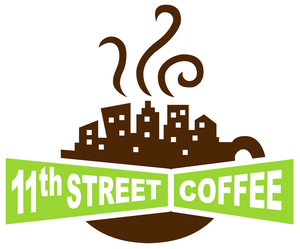What Causes a Caffeine Crash? Plus How To Avoid It
The exhilarating jolt that follows a cup of coffee can be a blessing for the sleep-deprived and the overworked. However, this isn’t the only effect an abundance of caffeine can have on the body. Many experience a sudden bout of fatigue or even headaches in the middle of the day, leaving them feeling worse than they did before that first sip. Caffeine crashes like these can be devastating to your productivity and general lifestyle, but you can do something to stop them. Explore the causes of a caffeine crash and how you can avoid it.
What Is a Caffeine Crash?
First, let’s establish what a caffeine crash is. When you consume a large amount of caffeine, it stimulates your brain, putting you in a heightened, energized state. However, that energy is temporary, meaning it quickly diminishes as soon as the caffeine works its way out of your system. Therefore, caffeine crashes are those moments when the stimulating effects of caffeine abruptly wear off, leaving you feeling drained, fatigued, and often with a pounding headache. It’s a swift descent from feeling alert and focused to being almost unable to keep your eyelids from closing. For many, this crash can be a notable event in their daily lives, impacting productivity and well-being.
What Are the Effects of a Caffeine Crash?
The effects of a caffeine crash can be significant and vary from mild discomfort to all-out draining symptoms. Here’s a closer look at how a caffeine crash can strike.
Fatigue and Drowsiness
The primary symptom of a caffeine crash is an overwhelming feeling of tiredness. You may feel the need to rest your eyes immediately after experiencing a sudden drop in alertness. For many, this effect occurs around lunchtime and persists for the rest of their day.
Difficulty Concentrating
The cognitive functions that caffeine usually enhances, such as concentration and attention, can be adversely affected during a crash. Tasks that would typically be a breeze might suddenly become challenging to manage. Depending on the severity of your crash, you may even find it more difficult to contribute to a conversation with your peers.
Irritability and Mood Swings
Aside from physical symptoms, a caffeine crash can lead to increased irritability and sudden mood swings. This can make for a challenging social and professional environment.
What Are the Causes of a Caffeine Crash?
Now that you know the symptoms of a caffeine crash, it’s important to discuss the underlying causes of a caffeine crash and how to effectively avoid them. Understanding why caffeine can have such a drastic effect on your energy levels is the first step in preventing the dreaded crash. Several factors can contribute to the onset of a caffeine crash, including:
Excessive Caffeine Consumption
It’s no secret that too much of anything can be a bad thing, and caffeine is no exception. That’s why, as mentioned previously, the number one cause of a crash is consuming too much caffeine. When you overload your system with caffeine, especially from multiple sources throughout the day, your body has to metabolize and eliminate it, which can lead to a crash.
Lack of Sleep
For many, caffeine is a crutch to compensate for a poor night’s sleep. However, using caffeine to mask sleep deprivation will only lead to a vicious cycle. Sleep is vital for your body to recuperate, and no amount of caffeine can truly replace it.
Dehydration
Caffeine is a diuretic, meaning it increases the production of urine, which can lead to dehydration. Dehydration not only contributes to a headache, but it can also exacerbate the fatigue associated with a caffeine crash.
Individual Tolerance Levels
Each person’s body can handle and process caffeine differently. Someone who doesn’t often ingest caffeine can crash more dramatically than a regular consumer should they decide to indulge in an extra cup. Because of this, it’s vital to remain aware of your own limits so you know when to stop consuming caffeine.
How Can You Avoid a Caffeine Crash?
Fortunately, you can prevent caffeine crashes with the right tweaks to your lifestyle. There are several effective strategies that can help you minimize the effects of or entirely avoid a caffeine crash. Here are some proactive measures to consider:
Limit Caffeine Intake
The most straightforward approach to avoid a caffeine crash is to reduce your caffeine intake. Determine what constitutes a manageable daily amount for you based on your weight, height, and caffeine sensitivity level, and do your best to stick to that amount. You may need to talk with a doctor to best determine how much caffeine is a healthy amount for you.
Gradually Reduce Caffeine Consumption
If you’re a heavy caffeine user, suddenly quitting can introduce withdrawal symptoms, including severe headaches. Gradually decreasing your caffeine intake can help you avoid these symptoms and the subsequent crashes.
Stay Hydrated
Because of caffeine’s diuretic properties, it’s essential to drink plenty of water when you’re consuming it. Staying hydrated will help counteract the dehydrating effects of caffeine and can keep you feeling more energetic. You can do this by always following up your cup of coffee with at least eight ounces of water. By drinking more water, you’re also likely to feel fuller for longer, reducing the urge to reach for another mug of your favorite caffeinated beverage.
Get Enough Sleep
It might seem like common sense, but one of the best ways to avoid a caffeine crash is to get enough sleep. Aim for seven to nine hours each night, and try sticking to a consistent sleep schedule. This way, you’re less inclined to drink that extra cup in the morning.
Balance Caffeine Intake With Healthy Eating
Pairing your caffeinated beverages with healthy snacks can help stabilize your energy levels throughout the day. Foods that combine carbs, fats, and protein are especially good for providing lasting energy.
Understanding and staving off a caffeine crash is an essential step in ensuring that your day is as productive and enjoyable as possible. Remember, moderation and balance are key to a healthy relationship with coffee and other caffeinated beverages, but that doesn’t mean you need to cut out your favorite brews entirely. 11th Street Coffee not only sells top-notch coffees from some of the world’s most premium brands, but we also carry decaf Keurig pods for those wanting to cut down on their caffeine intake. With significantly less caffeine in each pod, you can drink these tasty options without worrying about those dreaded midday crashes.




